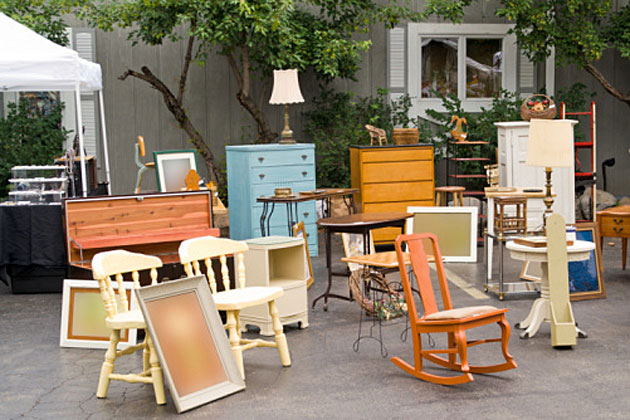Most people use storage auctions as a way to gather stock for a resale business. Unfortunately, when doing this you're bound to come across items that can't be resold. Whether you're looking at broken electronics or outdated appliances, some things will be difficult to sell as-is. Luckily, you may still be able to get some money from them by tearing them down for scrap metal.
Electronics like TVs, computers and even cell phones have small amounts of copper, aluminum and steel. They also include precious metals like gold, silver and palladium. In small amounts, none of these will earn you high profits, but you can collect them over time and sell them in bulk to scrap yards or even on eBay.
Another thing to keep in mind is that sometimes you'll come across a unit that was originally rented by a plumber, electrician, contractor or other person who works with a heavy volume of metal. If you know what to look for, these units can yield a high quantity of metal that can be sold at a profit. Because other bidders might not realize the scrap value of these items, you may be able to secure the lot for a low price.
Here are a few of the metals you should keep an eye out for:
- Brass
- Copper
- Aluminum
- Gold
- Silver
It may not be immediately obvious what type of metal you're dealing with, especially since you won't be able to closely examine items before an auction. If you familiarize yourself with what types of metals tend to be used in certain items, though, you can get a decent idea of how much something may be worth to scrap. For example, anything with an electronic component will have copper coils or wiring.
Steel and iron can also be scrapped, but they're not worth as much as heavy and precious metals and alloys. At high volumes, though, everything does start to add up. Of course, you'll need to worry about storing the scrap long enough to be able to make a profit, but scrap metal from electronics and appliances takes up much less space than the whole item would otherwise.
Once you've secured enough scrap to make it worth selling, you have a few choices. Handing it over at a scrap yard is certainly the fastest option, but you will get more money selling it on eBay or other similar sites. Even better, you can see if you can work out a deal with someone local who's in the scrap metal business. Having a regular contact who's interested in buying your unwanted scrap for a reasonable price is the fastest way to churn a profit on otherwise useless metal items.






